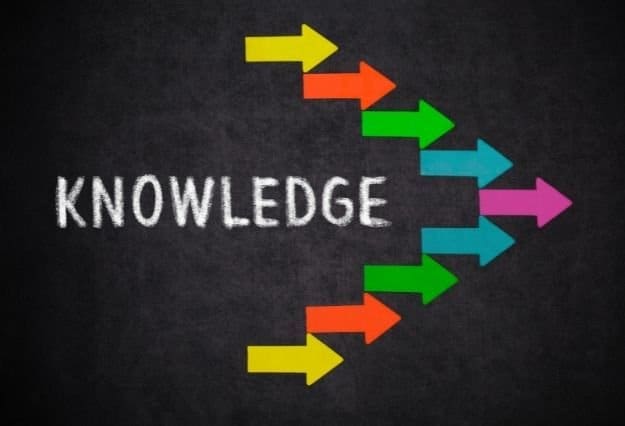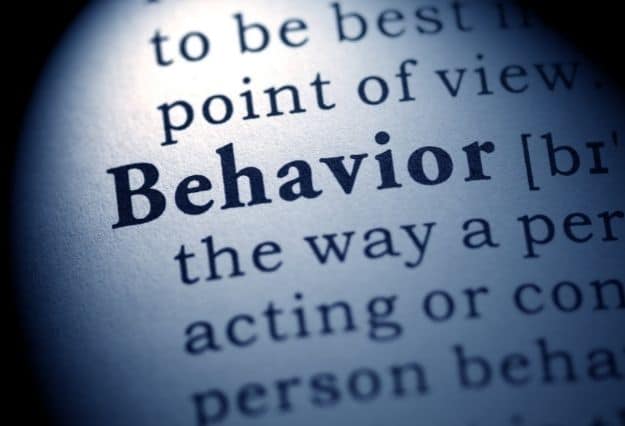Functions Of Attitude
Attitude refers to a set of opinion, purpose, or interest predispositions that involves expecting a certain level of experience and readiness coupled with an appropriate response.
Attitudes can also be termed as “frames of reference.” Attitudes usually provide a background against which events and facts are viewed.
A person’s attitude determines their endurance towards favorable or unfavorable feelings, action tendencies, and cognitive evaluation of an idea. People have attitudes regarding matters like politics, music, food, and religion.
For many people, attitudes typically settle into a logical pattern that may be difficult to change or adjust. Therefore, a company would do well to fit its products according to the pre-existing attitudes instead of changing people’s attitudes.
What is Attitude?
Attitude Definition by Robbins
Robbins defines attitude as favorable or unfavorable evaluation statements regarding events, people, or objects. An individual’s perception of something is usually reflected in their attitude.
Attitude Definition by G.W. Allport
Allport defines attitude as a systematic mental and neutral state of readiness acquired through experience and usually has a direct or dynamic influence on how an individual responds to related situations and objects.
Attitude Meaning
In simpler terms, an attitude refers to an individual’s perspective of looking at things or a person’s point of view of something.
Attitude can also be described as an individual’s state of mind that prepares them to act in a predetermined way. Attitude is an acquired feeling.
Attitude is a collective set of beliefs and feelings about people, specific ideas, or situations held by an individual.
Functions of Attitudes
Attitudes are categorized into four main groups/functions:
- Adjustment
- Ego defensive
- Value expression
- Knowledge
These functions are usually meant to enhance and protect how individuals view themselves.
Generally speaking, these functions of attitudes serve as the motivational bases that determine and strengthen positivity towards achieving goals perceived as satisfying or negativity towards objects deemed threatening or punishing.
Functions of Attitude in Consumer Behaviour
1. Adjustment Function
The adjustment function drives individuals towards rewarding and pleasurable objects and away from undesirable or unpleasant ones. The adjustment function is a practical concept that maximizes reward and minimizes punishment.
To a large extent, consumer perceptions of what is punishing and satisfying are based on their attitude. Consumer experience usually shapes their perceptions of service, store, or product.
Consumer experience can either be satisfying or unsatisfying. A consumer’s attitude towards a particular object is usually directly linked to the experience they have had.
2. Ego Defensive Function
The ego function serves to develop attitudes that are meant to protect self-image or ego. In many instances, how these attitudes are expressed outwardly is a direct opposite of how individuals perceive themselves.
For example, suppose a consumer had made a bad investment or a wrong purchase decision. In that case, they may defend the decision strongly as being a good decision or a result of receiving bad advice from another person.
Such an attitude is ego defensive and meant to protect the individual’s self-image, which usually occurs unknowingly.
3. Value Expression Function
Unlike the ego defensive function, which preserves our self-image, the value expressive function enables individuals to express their central values. As a result, consumers can develop some attitudes to express their values into something more concrete.
Therefore, a conservative individual is likely to have a negative attitude towards bright clothing and, alternatively, be attracted to dark, pinstriped suits.
Marketers need to understand what values their customers wish to express about themselves to translate these values into their products and campaigns to allow these self-expressions.
However, not all products allow themselves to fit such market segmentation.
Products with high social visibility are the ones that usually have the most significant possibility for expressive segmentation. Examples include Ferrari automobiles, Cross pens, Children stereo systems, and Saks Fifth Avenue clothes.
4. Knowledge Function
As humans, we usually seek stability, understanding, consistency, and definition to live in an orderly and structured environment. The need for structure makes humans develop an attitude of acquiring knowledge. The need to know is also particular.
An individual’s interest in a particular topic directly reflects the amount of devotion one will have in seeking information.
For example, an individual who does not play golf and lacks interest will not look for any information to understand the game. The need to know leads to the development of attitude regarding what we believe in.
Components of Attitude
- Cognitive component
- Behavioral component
- Affective component
1. Cognitive Component
Beliefs are the abstract elements of consumer attitude. The cognitive component of attitude is linked to the value statement. It comprises ideas, beliefs, values, and other particulars an individual may have faith in.
Brand equity is enhanced by positive brand associations, which are achieved through several positioning strategies. Marketers influence and establish favorable beliefs concerning the brand and unfavorable beliefs about contenders.
For example, a manager may have a value statement or faith in the quality of sincere hard work.
2. Affective Component
The emotive part of consumer attitude is the affective component—this component of attitude is connected to an individual’s feelings about another person. These feelings may be neutral, negative, or positive.
The following research models describe affective response determiners:
- The belief importance model examines affective responses in different competing brands.
- The functional theory of attitude states that consumers buy due to one of four physiological functions—value expression, application of prior knowledge, adjustment, and ego defense.
- Fishbein model relates consumer evaluations and beliefs to affective response—effective responses are positive if beliefs are desirable and strong.
For example, I like Mercy because she is honest, or I dislike Sharon because she isn’t sincere. This is an expression of feelings about an object, situation, or person.
3. Behavioral Component
The behavioral component of consumer attitude is intention. The behavioral part is connected to the impact of certain situations or conditions leading to personal behavior based on affective and cognitive components.
The research models below describe the relationship between actual purchase and consumption and intention to purchase.
- The theory of trying to consume describes actual purchasers’ consumption behavior. It gives details about the establishment and maintenance of continuing relationships with consumers.
- The theory of reasoned action describes purchasing behavior as a direct outcome of intention, determined by subjective norms and attitudes toward purchase.
For example, I don’t like Mercy because she is not sincere—this is an affective component; thus, I would like to segregate myself from her, a behavioral component. Therefore, I would steer clear of Mercy.
Affective and cognitive components are based on such behaviors. Only the behavior component can be seen—the former two components can’t be seen. Former is essential because it’s a foundation for attitude formation.
Factors Influencing Attitude
1. Social Factors
Most people in many societies love to lead a harmonious life—they avoid conflicts and uncalled-for friction with people.
They choose to develop positive attitudes towards issues and people.
Individuals’ attitudes may maintain and facilitate relationships with members of positively valued societies. Social norms and roles have a substantial influence on attitudes.
Social roles are how individuals are expected to act in a specific context or role—social norms related to the rules of the society for what behaviors are deemed appropriate.
2. Direct Instruction
Generally, being a conformist or the direction of your attitude you deem essential. In some situations, direct instruction can contribute to the formation of an attitude.
For instance, someone gives information on the importance of some fruit. We can develop a negative or positive attitude toward the fruit based on the information provided.
3. Family
The most influential source for attitude formation is the family. The elder sisters or brothers and parents may offer information about certain things.
You can develop a positive or negative attitude due to family influence, which is very hard to change.
4. Prejudices
An attitude may entail a prejudice, where individuals prejudge an issue, leaving out unbiased consideration to the evidence.
Prejudices are preconceived judgments or ideas where an individual develops certain attitudes towards other objects and people.
If you’re prejudiced against someone accused of a crime, you may view that person as guilty regardless of the proof. You can also be biased in favor of an object.
5. Personal Experience
Personal experiences have left a solid impression to be the basis of attitudes. Therefore, the attitude will be formed more easily when personal experience entails emotional factors.
In circumstances involving emotions, an acknowledgment will be a longer trace and more in-depth experience.
6. Media
Mass media like radio and television are means of communication that have a significant influence in shaping the beliefs and opinions of individuals.
There is current information on something that offers the base for new cognitive attitudes towards it.
7. Educational and Religious Institutions
Religious and educational systems have a solid influence in shaping attitudes since they lay the foundation of moral concepts and understanding within the individual.
The discernment between bad and good, the line of separation between something that should be done and what shouldn’t be done, is acquired from the center of religious and educational institutions.
8. Physical Factors
Clinical psychologists have acknowledged that physical vitality and health are vital factors in establishing adjustment. It has often been found that disease, accidents, or malnutrition have seriously interfered with normal development followed by critical behavioral disturbances.
Wrap Up
Attitudes allow consumers to break down the complexity of the actual world. As was recognized in the chapter on information processing, the real world is so complex that we can’t cope with it, so we develop mechanisms to simplify the situations.
Attitudes enable us to group or categorize objects as a method of knowing about them. Therefore, when a new object comes up, we group it into a category we know something about.
Through this, the new and other objects can share the same reactions we have since they’re now in the same category.



















